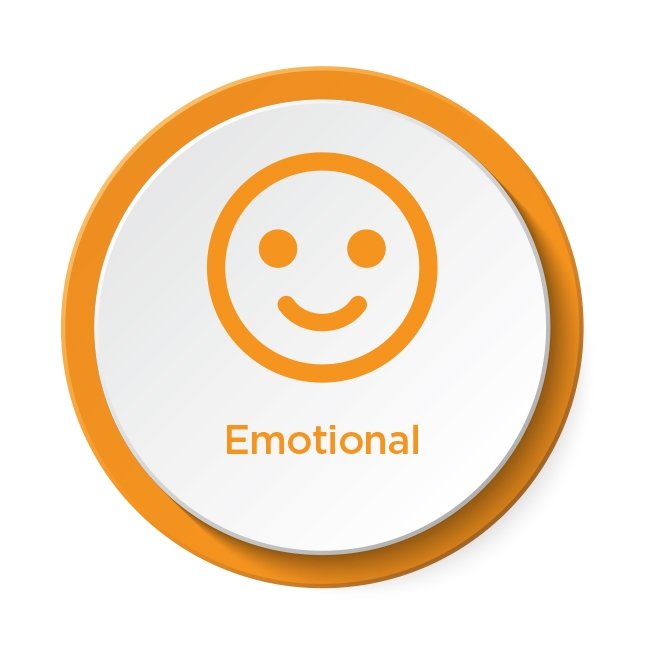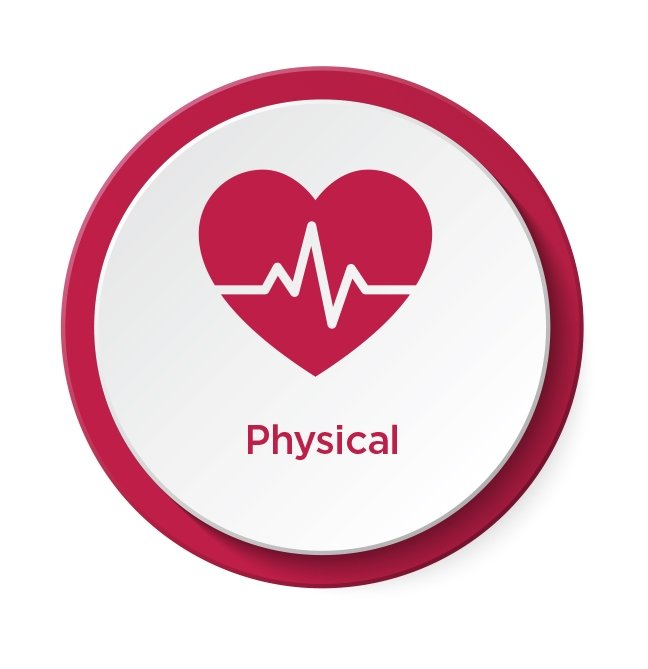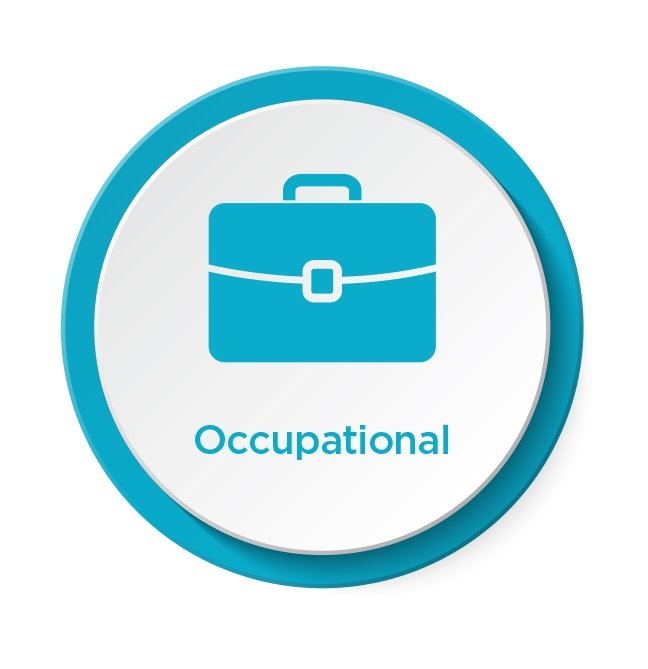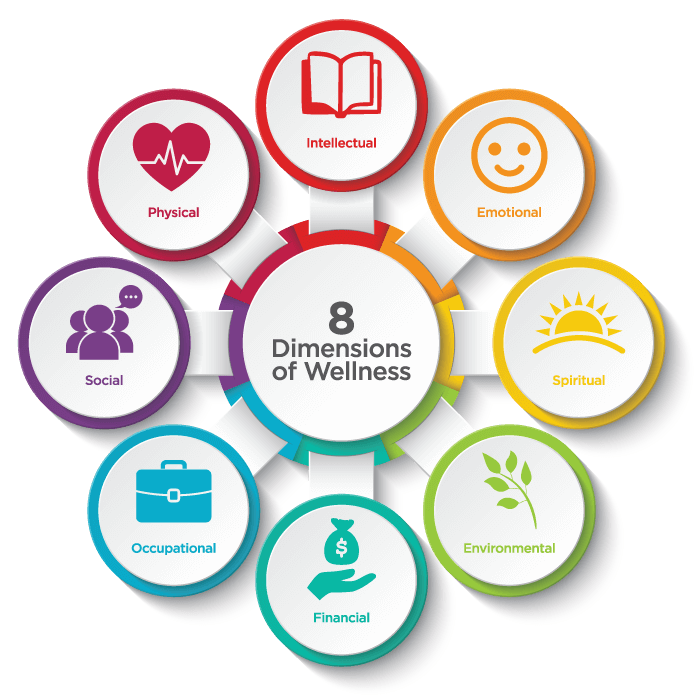Eight Dimensions of Wellness
The Eight Dimensions of Wellness focus on emotional, spiritual, physical, and more, offering resources to support overall well-being.
SAMHSA Dimensions of Wellness
Source: Substance Abuse and Mental Health Services Administration (SAMHSA)

Definition: coping effectively with life and creating satisfying relationships.
Tips:
- Take time for self-care
- Listen to music
- Reach out for help when you need it
- Develop a support network of people you trust
Student Resources:

Definition: expanding your sense of purpose and meaning in life.
Tips:
- Create a quiet space for solitude and meditation
- Spend time in nature
- Learn self-acceptance
- Reflect on your personal values and beliefs
Student Resources:

Definition: recognizing creative abilities and finding ways to expand knowledge and skills.
Tips:
- Read a book even if it’s just for a few minutes a day
- Journal or start a blog about your interests and/or passions
- Join a study group
- Complete a challenging puzzle
Student Resources:

Definition: recognizing the need for physical activity, diet, sleep, and nutrition.
Tips:
- Get 7-9 hours of sleep a night
- Try to fit a form of exercise into your daily routine
- Maintain a balanced diet
- Stay hydrated
Student Resources:

Definition: achieving good health by occupying pleasant, stimulating environments that support well-being.
Tips:
- Do your part to keep your environment safe
- Recycle
- Plant a personal or community garden
- Go for a walk and enjoy nature
Student Resources:

Definition: finding satisfaction with current and future financial situations.
Tips:
- Follow a budget
- Cut back or limit the unnecessary expense
- Limit and/or pay off debt
Student Resources:

Definition: getting personal satisfaction and enrichment from one’s work and hobbies.
Tips:
- Build relationships with coworkers
- Balance work and leisure time
- Take training to learn a new skill related to your occupation
Student Resources:


Definition: developing a sense of connection, belonging, and a well-developed support system.
Tips:
Student Resources: